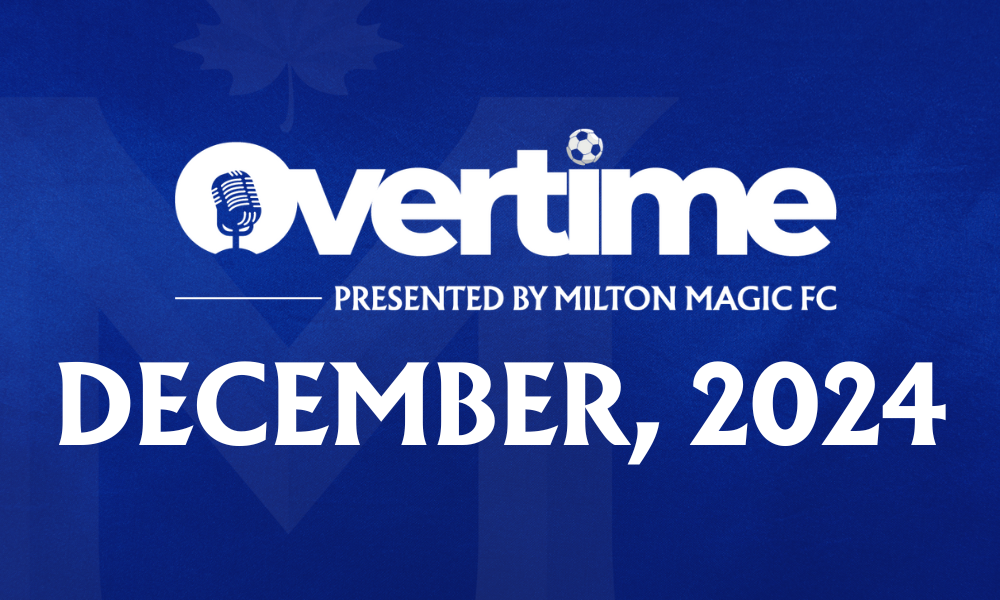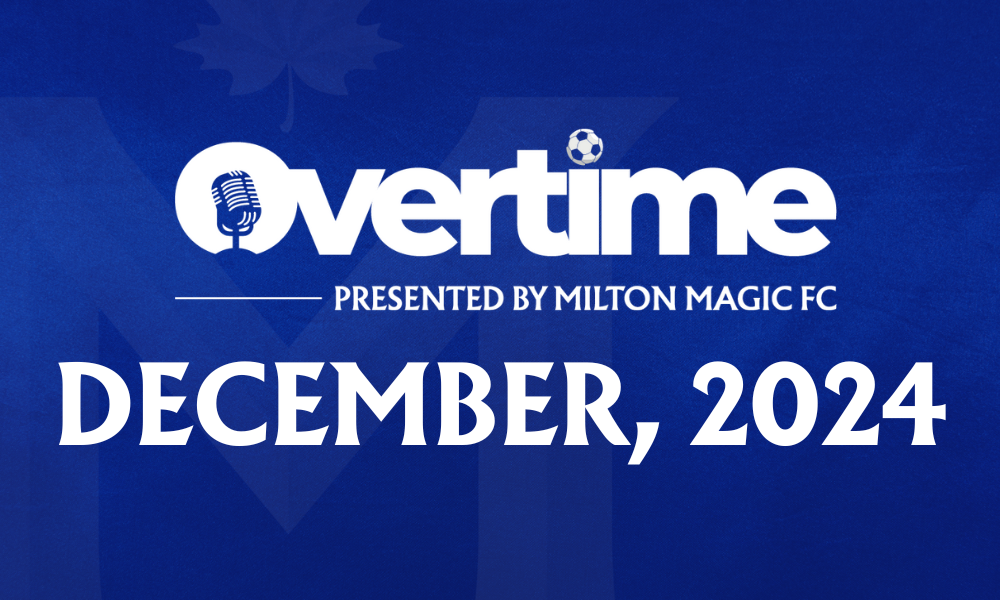
The Power of Identity: How Words Shape Who We Are and Who We Can Become
By Ryan Mendonca, Director of Player Development | Milton Magic FC
I never really thought about how much identity shapes behaviour until one day while playing with my young daughter. One moment, she’s in a princess dress, gliding around the house, fancy and full of grace and charm. Next, she’s wearing a Spiderman mask, climbing furniture, bravely chasing the bad guys and saving the day. Even as a toddler, her whole demeanor shifts entirely based on the role she’s playing.
Then there are her “school” games. If she’s the teacher, she’s instructive, authoritative, and confident. As the student, she’s curious and engaged, asking questions and following instructions. It’s fascinating how a simple shift in role can alter her approach entirely.
This got me thinking about the athletes we coach and the way in which they behave when assigned new roles. The same transformation happens on the field. When I tell a player they are the team captain, their body language changes—they stand taller, speak louder, and take more initiative. If I move a player from out wide to a central midfielder, they adopt new habits: scanning the field more frequently, positioning themselves differently, even changing their tone of communication. When I recently moved a player from their traditional defending role to an attacking position where they are expected to score, all of a sudden, they had a nose for goal and desire to get forward.
These shifts aren’t magic; they’re the power of identity.
The Stories We Tell Ourselves
James Clear, in Atomic Habits, wrote something that stuck with me: “Every action you take is a vote for the type of person you wish to become.” When we assign roles or use specific language with players, we are giving them a story to believe about themselves.
This is where identity becomes a self-fulfilling prophecy. A player labeled a “leader” begins to act like one. They might start addressing teammates during drills, encouraging others, or modeling effort. On the flip side, if we overemphasize labels like “troublemaker” or “lazy,” we’re reinforcing an identity that holds them back.
Carol Dweck’s work on growth mindset reinforces this idea. She found that praising effort rather than fixed traits (like talent) fosters resilience and a willingness to learn. For example, instead of saying, “You’re so fast,” try, “Your hard work in sprint drills is paying off.” This subtle shift places the focus on behaviours they can control and encourages them to keep improving.

The Role of Words and Roles
Assigning identities works because roles come with built-in scripts. When my daughter becomes Spiderman, she knows what’s expected: Spiderman is brave, agile, and selfless. On the field, the same principle applies. When I call a player “our playmaker,” I’m giving them permission to take risks, look for opportunities, and dictate the tempo of the game.
This aligns with organizational psychologist Adam Grant’s insights Think Again. Grant highlights the importance of reframing challenges as opportunities. By assigning roles, we guide athletes toward seeing themselves as problem-solvers, leaders, or learners, shaping how they tackle adversity. Creating a role or assigning an identity for a player is not just about who they are to be in the moment, but rather, a nudge in the direction of who they could become if they adopt the associated behaviours.
Analogies in Action
I’ve noticed that athletes often “play up” to their assigned roles, my daughter does the same at home. Consider this: if you were handed a chef’s hat, and told to prepare a meal, you’d likely focus more on presentation and seasoning than if you were just throwing together a snack. The role shapes the behavior.
Similarly, when I tell a player they’re a defensive anchor, they instinctively adjust their game. They intercept passes, organize teammates, and prioritize discipline. The act of being named for that role shifts their focus and effort.
Think about how you can use this insight in your environment as a coach. Can you try to assign different roles from one week to the next? Or maybe one practice to the next? Change up the captains, let someone else lead the warm-up and move players into different positions during their scrimmage. Take note, what do you observe and how can you use it?
Actionable Takeaways for Coaches and Parents
1. Choose Words Carefully
Be mindful of the labels you use. Positive labels like “leader,” “hard worker,” or “team player” reinforce constructive behaviors. Avoid limiting labels like “troublemaker” or “benchwarmer”. These can pigeonhole athletes and undermine their growth. Audit your vocabulary as sometimes these limiting labels are hidden in plain sight.
2. Assign Roles to Foster Growth
Rotate roles intentionally. Let different players lead warm-ups, captain scrimmages, or design practice drills. This not only builds confidence but also encourages diverse skill development.
3. Celebrate Behaviors, Not Traits
Instead of focusing on innate qualities, you should praise behaviors. For example, “I love how you kept looking for open teammates” is more actionable than “You’re so smart on the field.”

4. Use Role-Playing Off the Field
Encourage players to role-play in practice: one session as a coach, another as an opposing team’s star player. These exercises develop empathy and adaptability. Try different positions and develop a further understanding of the game. Sometimes a player or coach may find their fit into a different role than we previously thought.
5. Model Growth-Oriented Language at Home
Parents can reinforce identity-building at home. If a child works hard on a science project, praise their perseverance: “You stuck with it, even when it got tough.” This language builds a foundation for future resilience.
Final Thoughts
Identity is a powerful tool in sport and in life. As parents and coaches, the words we use and the roles we assign can inspire players to grow into their best selves. Let’s be intentional about the stories we help them tell themselves, because those stories will shape their actions, attitudes, and futures—both on and off the field.

